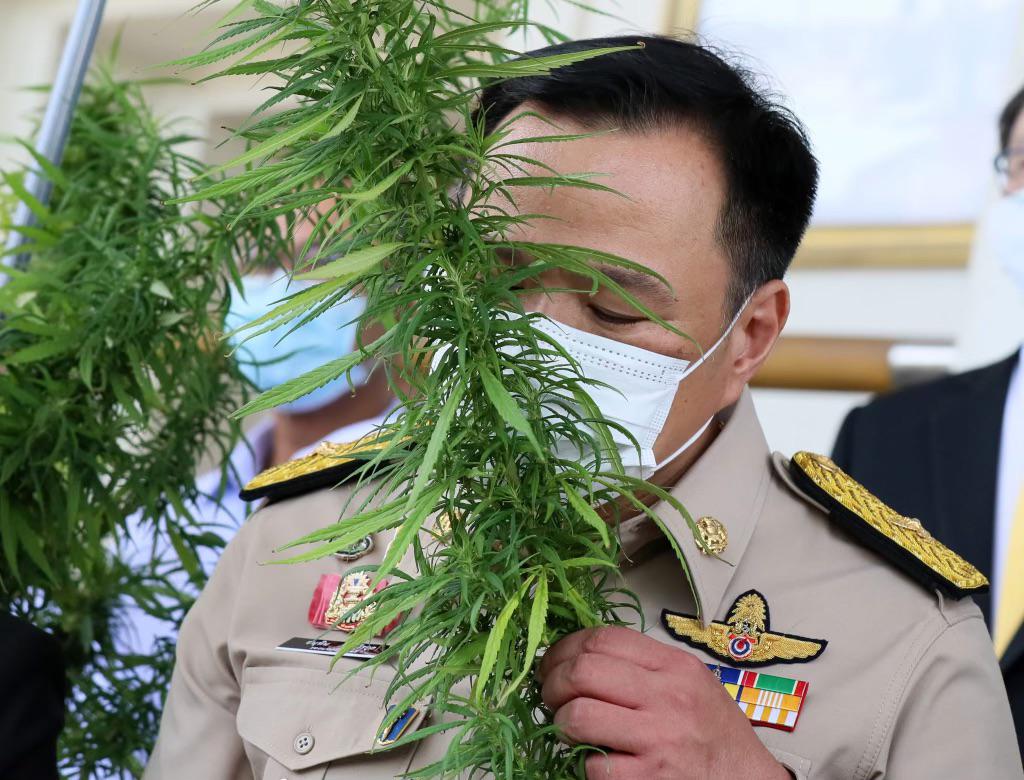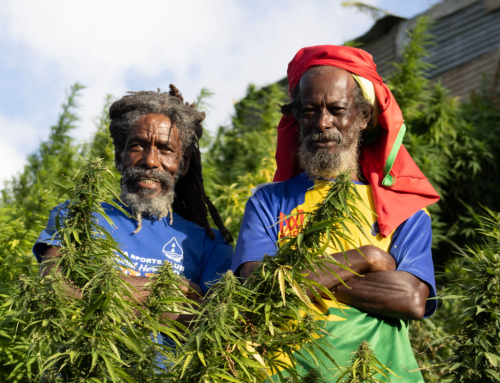Thai PM Renews Drug Crackdown Vow as Cannabis Sector Awaits Policy Clarity
BANGKOK – Prime Minister Anutin Charnvirakul, who once spearheaded Thailand’s shift toward Cannabis tolerance, has recommitted his administration to aggressive narcotics enforcement, promising to “win the war on drugs” in a move that underscores the nation’s ongoing battle against illicit trade.
Speaking at a narcotics suppression briefing on October 4, Anutin positioned drug interdiction as a top government imperative, directing police to bolster cross-border efforts and adopt cutting-edge tactics against evolving threats. The session highlighted recent police successes, including the seizure of over a billion methamphetamine pills and 52 tons of crystal meth in the past year, alongside the breakup of nine major trafficking rings in recent weeks. Assets confiscated from these operations topped 14.9 billion baht, or about $440 million, signaling substantial hits to underground networks.
Anutin’s rhetoric echoes Thailand’s historical hard line on substances, yet the focus here lands squarely on synthetic opioids and stimulants like ketamine and heroin, with no direct reference to Cannabis. This distinction carries weight for stakeholders in Southeast Asia’s nascent Cannabis market, where regulatory whiplash has tested investor patience.
Anutin, 58, built his political profile as health minister by championing Cannabis decriminalization in 2022, a reform that unleashed thousands of dispensaries and drew global attention to Thailand’s tropical cultivation potential. That policy framed the plant primarily as a medical asset, easing cultivation rules and spurring an estimated $1.2 billion in annual economic activity by some accounts. But momentum stalled under his predecessor, with a June 2025 reclassification by then-Health Minister Somsak Thepsuthin designating Cannabis flowers as a controlled herb, effectively confining sales to prescription-only channels and prompting widespread shop closures.
The reversal squeezed operators, many of whom pivoted from recreational to medical models amid compliance hurdles like mandatory lab testing for growers. Export ambitions faltered too, as stricter origin tracking deterred international buyers. By mid-2025, industry voices reported a 40% drop in licensed outlets, with tourism-driven sales in spots like Bangkok and Phuket taking the hardest hit.
Anutin’s ascent to Prime Minister on September 5, following a constitutional court upheaval that ousted the prior leader, rekindled optimism. His Bhumjaithai Party, which holds sway in a fragile coalition, conditioned support on fresh elections within four months, but Cannabis advocates see his return to power as a buffer against further rollback. Days after his swearing-in, Anutin donned a Cannabis-leaf patterned shirt at a cabinet meeting, a nod interpreted by market watchers as tacit reassurance.
Now, the Public Health Ministry has promised a two-week review of those 2025 curbs, prompted by a coalition of growers and retailers who delivered petitions directly to Anutin’s office. Their ask: scrap the controlled-herb status, revive 2022’s broader retail framework, and fast-track a comprehensive Cannabis bill to parliament. Officials, including Deputy Permanent Secretary Dr. Sakda Alapach, have tasked the Department of Thai Traditional and Alternative Medicine with gathering input, hinting at possible tweaks to balance abuse prevention with business viability.
For investors eyeing Thailand’s 300,000-plus hectares of arable land suited for hemp and high-THC strains, the drug war pledge offers a measure of separation. Hard narcotics remain the clear target, per police data showing meth as the dominant seizure, far outpacing any cannabis intercepts. Yet questions linger on enforcement priorities. Will renewed anti-trafficking zeal spill into Cannabis oversight, or will Anutin’s track record steer resources elsewhere?
Analysts tracking the sector point to fiscal upside: a stabilized framework could unlock $500 million in exports by 2027, bolstering rural jobs in a country where agriculture employs 30% of the workforce. Psychedelics, though nascent here, might benefit indirectly if medical reforms expand to include research on compounds like psilocybin, aligning with global trends in therapeutic applications.
As Thailand navigates this interim government, the Cannabis trade hangs in a familiar state of flux – neither fully embraced nor outright rejected. For now, Anutin’s dual role as interior minister gives him leverage to shape outcomes, potentially threading the needle between security demands and economic promise. Stakeholders should parse his next moves closely, betting that clarity emerges before year-end elections redraw the board.



































